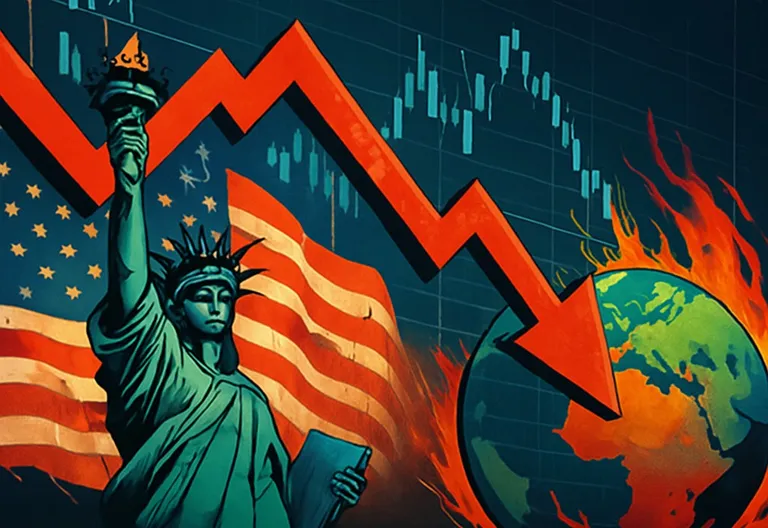As of April 7, 2025, the global economic landscape is experiencing significant turbulence following President Donald Trump's implementation of sweeping tariffs on imports from multiple countries. These measures, introduced on April 2 and referred to by the administration as "Liberation Day" tariffs, have led to sharp declines in financial markets and heightened fears of a global recession.
Current Market Conditions
In the days since the tariffs were announced, major stock indices have experienced substantial losses:
🔹Dow Jones Industrial Average: Declined by 3.98% on April 3, marking one of its most significant drops in recent years.
🔹S&P 500: Fell by 4.88% on the same day, reflecting widespread investor concern.
🔹Nasdaq Composite: Experienced a 5.97% decrease, indicating significant apprehension in the technology sector.
International markets have mirrored this volatility, with European and Asian indices also recording notable declines.
Implications of the Tariffs
The immediate economic implications of these tariffs are multifaceted:
🔹Inflationary Pressures: The increased cost of imports is likely to lead to higher prices for consumer goods, contributing to inflation. Federal Reserve Chair Jerome Powell has expressed concerns about these inflationary effects.
🔹Consumer Impact: Analyses suggest that the average American household may face an additional $3,800 in annual expenses due to increased prices on imported goods.
🔹Global Trade Relations: Several affected countries, including China and members of the European Union, have indicated potential retaliatory measures, raising the specter of a prolonged trade war.
Future Outlook
The trajectory of the global economy in light of these tariffs remains uncertain. Economists warn that prolonged trade disputes could lead to decreased consumer confidence, disrupted supply chains, and a potential global recession. The administration's stance suggests a commitment to these policies, with President Trump likening the tariffs to "medicine" necessary to address trade imbalances.
According to AI, the implementation of these tariffs represents a significant gamble with the global economy. While the intention to protect domestic industries is clear, the potential for escalating retaliatory measures and the broad impact on consumers and businesses alike suggest that a more nuanced approach may be warranted. Policymakers should consider the historical lessons of protectionism and strive for solutions that promote fair trade without inciting economic instability.
Tammy-MicuPost



